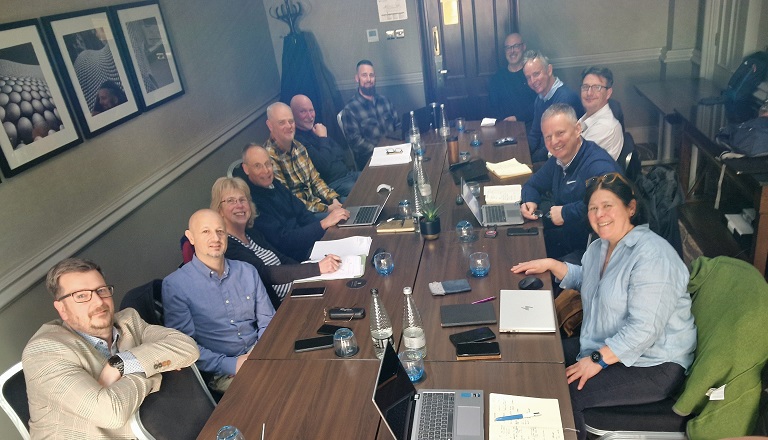
Heating is a big issue when it comes to climate change. It is responsible for almost a half of all UK greenhouse gas emissions.
Hydrogen could provide a practical and affordable opportunity to reduce the carbon impact of keeping warm. The main emissions from burning hydrogen are just water and oxygen.
That's why Keele University has joined a partnership project to trial a new natural gas/hydrogen mix for homes and offices. The project is called HyDeploy. It will take advantage of Keele's unique position as a self-contained energy network and aims to demonstrate that blending up to 20% hydrogen into the natural gas supply can be delivered without disruption. The results of this project will help inform and influence future energy technology policy developments in the UK.
Keele University is recognised as an international leader in scientific innovation and research. This makes us the natural choice for this trial. It also reflects the University's growing status as a showcase for environmental best-practice – the pre-eminent green campus university. It is also a perfect fit for the University's SMART Energy Network Demonstrator programme, Europe's largest SMART energy demonstrator project. The Stoke-on-Trent city region has a growing international reputation as a hotspot for energy innovation, with the UK's biggest deep geothermal city-centre district heating system already under construction.
The first stage of the HyDeploy project has just got the go-ahead, with all gas appliances in the project area getting a check up. Typical appliances have already been put through their paces by the national Health and Safety Laboratory. Over the next few months the HyDEploy team will be conducting checks on appliances in houses and University buildings to ensure that everything is in good condition.
The evidence gathered will be submitted to the Health and Safety Executive before any permission is granted to go to the next stage – a year-long trial of a hydrogen blend commencing Spring 2019. It must be as safe as current normal gas supply before any trial can go ahead.
A number of European countries already approve a range of hydrogen/natural gas mixes and there are trials taking place elsewhere in Europe, but this is a first for the UK. The trial, if it goes ahead, will include 100 houses and flats and a range of University buildings in the area identified in the map enclosed below.
It is being funded by the national energy regulator OFGEM, through its Network Innovation Competition, alongside project partners Cadent (formerly National Grid Gas Distribution) and Northern Gas Networks.
For further information please visit the project website www.HyDeploy.co.uk












